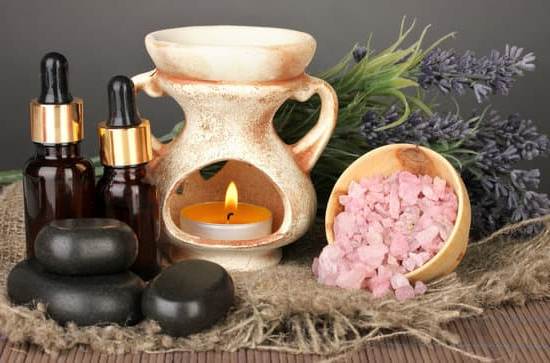Aromatherapy for stress and depression has gained increasing recognition as a natural and holistic approach to improving mental health and overall well-being. Aromatherapy involves the use of essential oils extracted from various plants to promote relaxation, enhance mood, and reduce symptoms of stress and depression. These potent oils are known for their therapeutic properties and have been used for centuries in traditional healing practices.
Stress and depression are common mental health issues that can affect individuals both psychologically and physically. While stress can lead to feelings of tension, anxiety, and overwhelm, depression is characterized by persistent sadness, loss of interest in activities, and fatigue.
Both conditions can impact one’s quality of life and overall health if not effectively managed. Aromatherapy offers a natural way to support emotional balance and promote relaxation, making it a popular choice for those seeking alternative methods of alleviating symptoms.
The benefits of aromatherapy for stress and depression lie in its ability to stimulate the olfactory system (sense of smell) and trigger responses in the brain that can influence emotions, mood, and stress levels. When inhaling certain essential oils or using them topically, individuals may experience a sense of calmness, improved mood, or mental clarity.
The science behind how aromatherapy works is still being explored but many studies suggest that certain essential oils contain compounds that have soothing or uplifting effects on the mind-body connection. In the following sections, we will delve deeper into understanding how aromatherapy can be a valuable tool in managing stress and depression effectively.
Understanding Stress and Depression
Stress and depression are common mental health conditions that can have a profound impact on an individual’s well-being. Stress, often caused by external pressures or internal struggles, can manifest in both psychological and physical symptoms. From feelings of anxiety and irritability to headaches and muscle tension, the effects of stress can be overwhelming.
On the other hand, depression is characterized by persistent feelings of sadness, hopelessness, and loss of interest in activities once enjoyed. Both conditions can disrupt daily life and hinder overall quality of life.
The psychological impact of stress and depression is significant, affecting one’s thoughts, emotions, and behaviors. Individuals may experience racing thoughts, low self-esteem, difficulty concentrating, and changes in appetite or sleep patterns. At times, these mental health issues can lead to social withdrawal, reduced productivity at work or school, and strained relationships with others. Additionally, the stigma surrounding mental health can contribute to feelings of isolation and shame for those struggling with stress and depression.
From a physical perspective, stress and depression can take a toll on the body as well. Chronic stress has been linked to various health problems such as heart disease, digestive issues, weakened immune system, and exacerbation of existing conditions like asthma or arthritis. Similarly, untreated depression can increase the risk of developing chronic illnesses like diabetes or hypertension due to changes in hormone levels and inflammatory responses in the body.
Recognizing the interconnected nature of mental health and physical health is essential in addressing stress and depression effectively. Aromatherapy offers a holistic approach that targets both aspects for comprehensive wellness management.
- Recognize symptoms of stress & depression
- Monitor your thoughts & emotions
- Seek professional help if needed
How Aromatherapy Works
Aromatherapy is a holistic healing treatment that uses natural plant extracts to promote health and well-being. The use of essential oils in aromatherapy can have a profound impact on mental and emotional states, making it a popular complementary therapy for stress and depression.
The science behind how aromatherapy works lies in the interaction between the essential oils and the brain. When inhaled, the aromatic molecules stimulate certain receptors in the olfactory system, triggering the release of neurotransmitters like serotonin and endorphins, which are known to enhance mood and reduce stress levels.
One of the key ways aromatherapy helps alleviate symptoms of stress and depression is through its ability to influence the limbic system – the part of the brain responsible for emotions, behavior, and memory. Essential oils have unique chemical compositions that can directly affect this region, leading to feelings of relaxation, calmness, and even improved cognition. Additionally, some essential oils have adaptogenic properties, meaning they can help regulate hormonal imbalances caused by chronic stress or depression.
Research has shown that certain essential oils used in aromatherapy for stress and depression can have a direct impact on physiological markers of these conditions. For example, studies have found that inhaling lavender essential oil can reduce cortisol levels (the stress hormone) in the body, while bergamot essential oil has been linked to lower heart rate and blood pressure.
By understanding the scientific basis behind how aromatherapy works on a molecular level, individuals seeking relief from stress and depression can make informed decisions when incorporating this natural therapy into their wellness routines.
Best Essential Oils for Stress Relief
Aromatherapy has become increasingly popular as a complementary therapy for managing stress and depression. The use of essential oils derived from plants is believed to have therapeutic properties that can help improve mood, reduce anxiety, and promote relaxation. When it comes to selecting essential oils for stress relief, there are several options known for their calming and mood-boosting properties.
Here are some of the best essential oils for stress relief:
- Lavender: Known for its soothing scent, lavender oil is often used to promote relaxation and improve sleep quality.
- Chamomile: Chamomile oil has anti-anxiety effects and can help calm the mind and reduce stress levels.
- Bergamot: This citrusy oil is known for its uplifting aroma, which can help relieve feelings of sadness or despair.
- Ylang Ylang: Ylang ylang oil is commonly used to alleviate feelings of tension and promote a sense of well-being.
Using these essential oils in aromatherapy practices can be an effective way to manage symptoms of stress and depression. Whether diffused in the air, added to bathwater, or applied topically with a carrier oil, incorporating these oils into daily routines can provide relief and support mental well-being.
In addition to their pleasant scents, these essential oils contain compounds that have been studied for their potential therapeutic benefits on mood and emotional health. While individual responses may vary, many people find aromatherapy with these oils to be a valuable tool in their self-care routine when dealing with stress and depression. By exploring different essential oils and finding what works best for you, you may discover a natural approach to improving your mental well-being.
Aromatherapy Techniques
Aromatherapy is a holistic healing treatment that uses natural plant extracts to promote health and well-being. When it comes to managing stress and depression, aromatherapy can be a valuable tool in helping individuals find relief and relaxation. By incorporating essential oils into daily routines, individuals can experience the benefits of aromatherapy for stress and depression management.
Creating a Relaxing Atmosphere
One effective way to incorporate aromatherapy into daily routines for stress and depression management is by creating a relaxing atmosphere at home or work. Use a diffuser to release calming essential oils such as lavender, chamomile, or bergamot into the air. The gentle scent of these oils can help reduce feelings of anxiety and promote relaxation.
Topical Application
Another way to use aromatherapy for stress and depression is through topical application. Dilute a few drops of essential oil in a carrier oil such as coconut or jojoba oil, then apply it to pulse points like wrists, temples, or the back of the neck. This method allows the aroma of the essential oils to be absorbed through the skin, providing a soothing sensation throughout the day.
Aromatherapy Bath
Taking an aromatherapy bath can also be a luxurious way to unwind and relieve stress. Add a few drops of your favorite essential oil to a warm bath, then relax and breathe in the aromatic steam. This method not only helps calm the mind but also soothes tired muscles, making it an ideal self-care practice for managing stress and depression symptoms effectively.
Incorporating these simple yet effective aromatherapy techniques into daily routines can provide individuals with valuable tools for managing stress and depression naturally. Whether it’s creating a calming atmosphere, using topical applications, or indulging in an aromatherapy bath, these methods can make a significant difference in promoting mental well-being and emotional balance.
Case Studies
Aromatherapy has long been recognized for its potential to relieve stress and alleviate symptoms of depression. This holistic approach to wellness involves the use of essential oils extracted from plants to promote relaxation, improve mood, and reduce anxiety. Many individuals have found relief from the daily struggles of stress and depression through the practice of aromatherapy.
One essential oil that has gained popularity for its stress-relieving properties is lavender oil. Known for its calming scent, lavender oil can help promote relaxation and ease feelings of tension and anxiety. Another essential oil often used for combating depression is bergamot oil. Its citrusy aroma is believed to help uplift mood and reduce feelings of sadness or despair. These essential oils, along with others like chamomile and ylang-ylang, can be powerful tools in managing stress and depression.
Real-life stories serve as powerful testimonials to the effectiveness of aromatherapy for stress and depression. Individuals who have incorporated aromatherapy into their self-care routines often report improvements in their overall well-being, including reduced stress levels, better sleep quality, and a more positive outlook on life. By sharing these personal experiences, others may feel motivated to explore the benefits of aromatherapy for themselves and discover how it can make a difference in their mental health journey.
| Essential Oil | Main Benefit |
|---|---|
| Lavender Oil | Promotes relaxation and reduces anxiety |
| Bergamot Oil | Uplifts mood and combats feelings of sadness |
| Chamomile Oil | Calms nerves and promotes emotional balance |
Combining Aromatherapy With Other Therapies
When it comes to managing stress and depression, incorporating aromatherapy into a holistic treatment plan can provide additional support and benefits. Aromatherapy can complement traditional therapies such as psychotherapy or medication by providing a natural and soothing way to alleviate symptoms. By working in conjunction with other treatments, aromatherapy can enhance the overall well-being of individuals struggling with stress and depression.
For those undergoing psychotherapy or counseling for stress and depression, incorporating aromatherapy sessions into their routine can create a calming environment that promotes relaxation and emotional healing. The use of essential oils like lavender, chamomile, or bergamot during therapy sessions can help individuals feel more at ease, making it easier to open up and engage in the therapeutic process. Additionally, the pleasant scents of essential oils can trigger positive emotions and memories, further supporting the work being done in therapy.
In cases where individuals are taking medication for stress and depression, aromatherapy can be used as a complementary approach to alleviate symptoms and improve mood. Certain essential oils have been shown to have mood-boosting properties that can enhance the effects of medication.
By incorporating aromatherapy into their daily routine alongside medication, individuals may experience an added sense of calmness and well-being that supports their overall mental health. However, it is important for individuals to consult with their healthcare provider before using aromatherapy as a supplementary treatment to ensure compatibility with existing medications.
Aromatherapy Safety Tips
In the realm of holistic wellness, aromatherapy has emerged as a powerful tool for managing stress and depression. By harnessing the therapeutic properties of essential oils, individuals can experience a natural and effective way to alleviate symptoms and promote emotional well-being. Through understanding the profound impact of stress and depression on both the mind and body, aromatherapy offers a gentle yet potent solution that addresses these concerns at their core.
Aromatherapy works by stimulating the olfactory system in the brain, triggering emotional responses that can help reduce feelings of anxiety, sadness, and overwhelm. The science behind this practice lies in the ability of certain scents to influence neurotransmitters like serotonin and dopamine, which play key roles in regulating mood. By incorporating specific essential oils into daily routines, individuals can create a soothing and uplifting atmosphere that promotes relaxation and mental clarity.
When it comes to selecting essential oils for stress relief, there are several standout options known for their calming and mood-boosting properties. From lavender for its relaxing effects to citrus oils like bergamot and sweet orange for their energizing qualities, each oil offers unique benefits that cater to different emotional needs.
By exploring these aromatic treasures and finding blends that resonate personally, individuals can personalize their aromatherapy practice to suit their individual preferences and goals in managing stress and depression.
Frequently Asked Questions
What Essential Oil Is Good for Stress and Depression?
Lavender essential oil is known for its calming and stress-relieving properties. The soothing aroma of lavender can help reduce feelings of anxiety, promote relaxation, and improve overall mood. Many people find that incorporating lavender oil into their daily routine helps manage stress and symptoms of depression.
How Does Aromatherapy Relieve Depression?
Aromatherapy can help relieve depression by stimulating certain parts of the brain that are responsible for controlling emotions and mood. When inhaling essential oils like lavender, chamomile, or bergamot, the olfactory system sends signals to the brain, triggering the release of neurotransmitters like serotonin and dopamine.
These chemicals play a crucial role in regulating mood and promoting feelings of well-being.
What Scent Calms Anxiety?
Scents like chamomile, rose, or geranium are known for their calming effects on anxiety. Chamomile has a sweet, floral aroma that is particularly effective at reducing anxious feelings and promoting relaxation. Rose oil is also commonly used to alleviate stress and anxiety due to its comforting scent.
Geranium oil has a balancing effect on emotions, making it helpful in calming nerves and reducing tension. Incorporating these scents into your environment through aromatherapy can help create a sense of calmness and peace during times of anxiety.

Are you looking for a natural way to improve your health and wellbeing?
If so, aromatherapy may be the answer for you.





